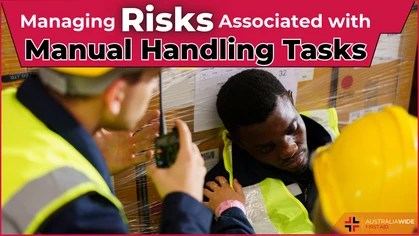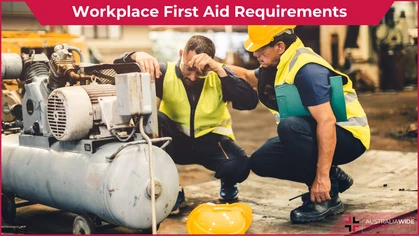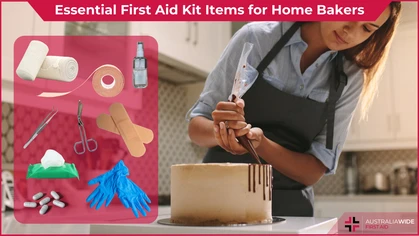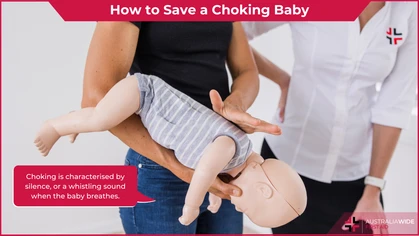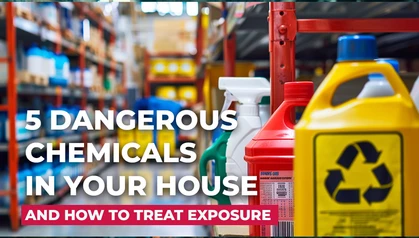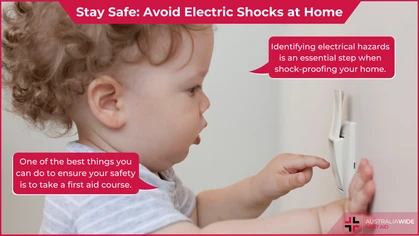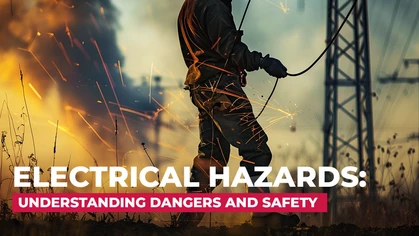Dealing with Food Poisoning: Common Symptoms, Causes, and First Aid Treatments

Danger

Contaminated food can cause food poisoning or illness.
If you eat or drink contaminated food, you may experience food poisoning or food illness. This can lead to mild to severe symptoms. It's crucial to know the common symptoms and seek proper treatment to avoid further complications.What is Food Poisoning?
Food poisoning, also known as foodborne illness, is a condition that occurs when contaminated food or drink is consumed. The symptoms of food poisoning can range from mild to severe and can include nausea, vomiting, diarrhea, abdominal cramps, fever, headache, fatigue, and dehydration. Food poisoning can sometimes lead to serious complications such as kidney stones and other long-term health problems. Therefore, it is important to prevent food poisoning by practicing proper food safety.Food poisoning symptoms
The symptoms of poisoning can vary depending on the type of bacteria or virus that caused the infection. Some of the common symptoms of food poisoning include:- Nausea and vomiting
- Diarrhea
- Abdominal cramps
- Fever
- Headache
- Fatigue
- Dehydration
Causes of Food Poisoning
Food poisoning can be caused by a variety of bacteria, viruses, and parasites. Some of the most common causes of food poisoning include: Bacteria: Salmonella, E. coli, Campylobacter, Listeria, and Clostridium perfringens are some of the common types of bacteria that can cause food poisoning. These bacteria can be present in raw meats, poultry, eggs, and unpasteurized dairy products. Viruses: Norovirus, rotavirus, and hepatitis A are some of the viruses that can cause food poisoning. These viruses can be present in contaminated water or food that has been handled by an infected person. Parasites: Parasites such as Cryptosporidium and Giardia can cause food poisoning. These parasites can be present in contaminated water or food that has been prepared in unsanitary conditions.Preventing Food Poisoning
Practice good food safety habits. Some of the things you can do to reduce the risk of food poisoning include:- Wash your hands with soap and water before preparing food and after using the bathroom.
- Cook food to the appropriate temperature to kill bacteria and viruses.
- Avoid consuming raw or undercooked meat, poultry, eggs, and seafood.
- Store food properly to prevent contamination.
- Drink clean and safe water.
The Importance of Food Safety Training for the Food Industry
Ensuring food safety is of utmost importance in the food industry, as it prevents the spread of foodborne illnesses and guarantees the production and service of safe, high-quality food to consumers To achieve this, food safety training is essential for both industry employees and consumers who depend on safe and quality food.
First Aid Training - Food Poisoning
First Aid
If you suspect that you are experiencing symptoms of food poisoning, it is crucial to take prompt action to avoid any further health complications. Below are some initial steps you can take for first aid treatments for food poisoning:- Stay hydrated by drinking water and other fluids to recover from food poisoning.
- Seek medical attention right away if symptoms are severe or if you have a weakened immune system.
- Taking a first aid course can prepare you to respond to food poisoning emergencies.
- Resting is crucial to help your immune system fight off the infection and speed up your recovery.
- Over-the-counter medications like anti-diarrheal medicines and pain relievers can help alleviate some of the symptoms.
The Importance of Food Safety Training
In the food industry, it's essential to have food safety training to prevent the spread of foodborne illnesses and guarantee safe food consumption. This training equips employees with the necessary knowledge and skills to handle food safely, avoid contamination, and maintain a hygienic work environment. It covers proper food storage and preparation, handling of raw meats and other foods that are prone to contamination, and equipment and work surface cleaning and sanitization. Food safety training also helps employees to recognize the symptoms of food poisoning and how to respond appropriately. This includes knowing when to seek medical attention and how to administer first aid for food poisoning. In addition, food safety training can help employees to understand the importance of drinking plenty of water and staying hydrated to prevent dehydration.Conclusion
Food poisoning can be a serious condition that requires immediate attention. By practicing good food safety habits and recognizing the common symptoms of food poisoning, you can reduce the risk of infection. If you experience symptoms of food poisoning, it is important to stay hydrated, seek medical attention if necessary, and rest. Taking a first aid course can also help you learn how to respond to emergencies related to food poisoning. Remember, prevention is the best medicine when it comes to food poisoning.
Originally published at
https://www.australiawidefirstaid.com.au/resources/dealing-with-food-poisoning
as part of the Australia Wide First Aid Articles Library
